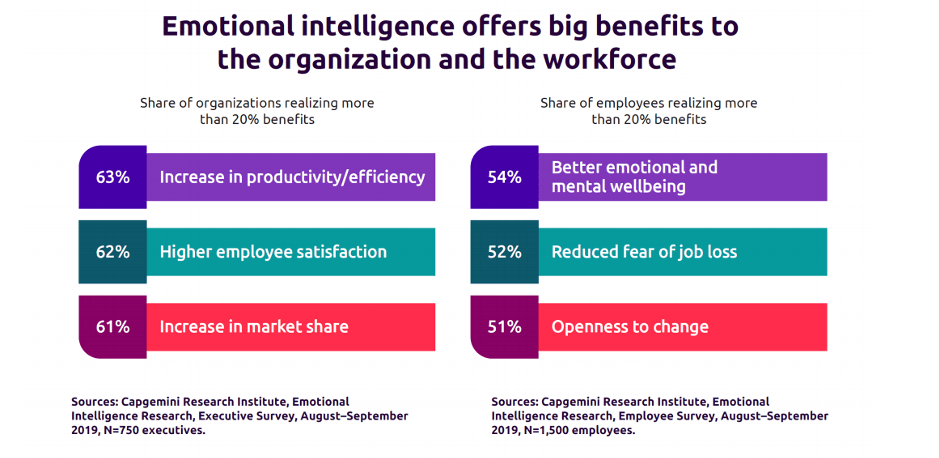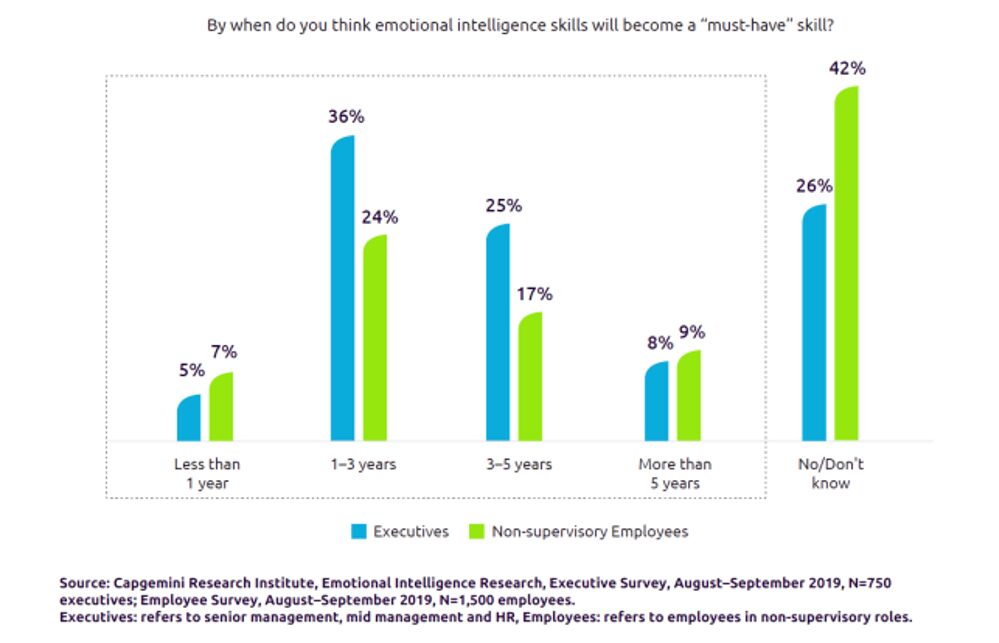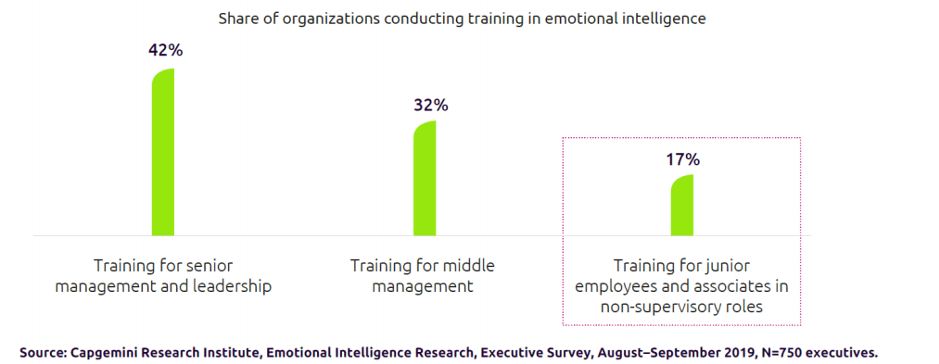Jack Ma, co-founder and former executive chair of Alibaba Group, the Chinese multinational conglomerate, famously said “No matter how smart you are, if you never know how to work with people, you will never be successful”.
Emotional Intelligence (EI) “Involves the ability to perceive, understand, utilise and regulate emotions”[1]. Using the Genos International© model, competencies in emotional intelligence include: Self-Awareness; Awareness of Others; Authenticity; Emotional Reasoning; Self-Management; and Positive Influence.
Emotional intelligence has been a core concept of leadership for many years, but today it is becoming a critical skill for employees at all levels. With the developments and enhancements in automation and Artificial Intelligence (AI) presenting new opportunities and efficiencies, there is a mixture of excitement and apprehension among workers. “This could improve my life and make it easier”, often followed by “What is going to happen to my job?” The one thing that robots will never be able to replace is our unique human cognitive capabilities, the “human” side of people, our emotions. This has been corroborated recently by The Harvard Business Review who concur that now, more than ever, we need to develop new emotional skills to differentiate ourselves.
Understanding the emotional intelligence levels and improving emotional intelligence in the workplace can have substantial, measurable benefits, such as better collaboration among employees and a happier work environment. When professionals improve emotional intelligence, they enhance their impact, influence and resilience and the company benefits from increased productivity, profitability and customer loyalty.
According to a 2019 study by Capgemini, organisations can achieve returns up to four times higher by investing in EI skills.
The study indicates that emotional intelligence is the essential skillset for the age of AI. The study shows that emotional intelligence offers significant benefits to the organisation and the workforce as follows:

[1] Peter Salovey and Jack Mayer
When we look at leaders in some of the most successful companies, it’s clear that they demonstrate high levels of all of the key components of emotional intelligence. However, in their report, Capgemini conclude that every job level will benefit from an increased emotional intelligence quotient. In summary, EI will become a “must have” skill for all employees over the next 1-3 years. The demand for EI skills in employees will be up to six times greater than the current levels across countries and sectors.

Despite recognising that EI is an essential for all employees, fewer than one in five organisations train non-supervisory employees on emotional intelligence.

With globalization, emotional intelligence is more significant than ever when teams are cross-cultural and dispersed, increasing the complexity of interactions of emotions and how they are expressed.
We are all emotionally intelligent and capable of demonstrating emotionally intelligent behaviours, but need to take more time to understand how we are showing up to those around us and take steps to improve our emotional intelligence. As with anything, it takes practice but even small steps can make a big difference.
The Capgemini research has shown how important it is to build emotional intelligence in organisations today. It is essential that companies embed it into their various people practices and take both bottom up, and top down approaches to build a high EI workforce. While EI training has traditionally been focused on senior leaders, organisations must now focus on making EI training accessible to all employees at all levels.

